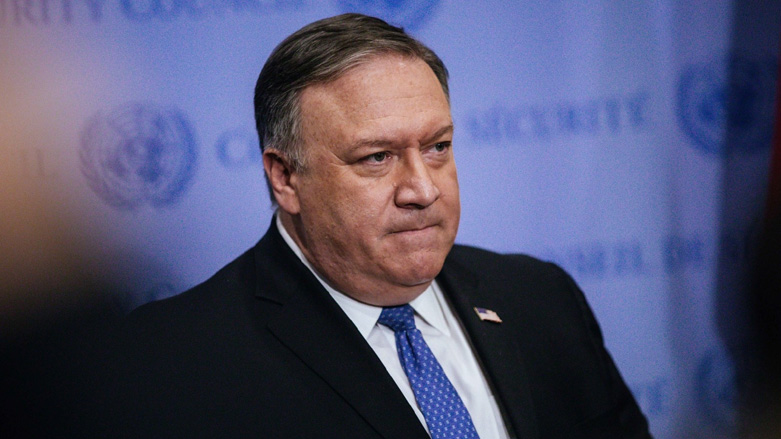Pompeo, again, affirms continued support for Syria’s Kurds

WASHINGTON DC (Kurdistan 24) – US Secretary of State Mike Pompeo, has, once again, affirmed America’s continuing commitment to Syria’s Kurds as the US prepares to withdraw troops from that country.
Following Pompeo’s address to the World Economic Forum in Davos, Switzerland on Wednesday, which he gave via teleconference from Washington because of the partial US government shutdown, Fox News’ Martha MacCallum held a wide-ranging interview with the Secretary.
“You’re a former military man,” MacCallum told Pompeo. “What do you say to those who look at the Kurds who fought alongside us, who don’t want to be abandoned there and who feel very vulnerable, if we leave their side?”
“I think the President was very clear about his expectation with how the Kurds will need to be treated after the time that the US military personnel depart,” Pompeo replied.
“We understand the work that they did alongside of us. It was enormously important and good work, and we’re going to ensure that the Kurds have a proper place in Syria after our departure,” he continued.
Asked whether Turkey would accept the US position, Pompeo answered, “I’ve had lots of conversations” with Turkish officials. “I think we have a way forward.”
The fate of Syria’s Kurds is, indeed, a matter of concern in the US. At a seminar on Wednesday at Washington’s Center for Security and International Studies about the US plans to withdraw from Syria, as well as Afghanistan, the panel was asked about the safety of the Kurds after the US departure.
Nancy Youssef, who covers national security issues, including in the Middle East, for The Wall Street Journal, described both US good will toward its Kurdish allies in Syria and the complexities involved in turning that good will into effective action.
Youseff noted that there is a “real effort” in Washington “to mitigate,” as much as possible, “the risk to the Kurds.”
“That’s why you’re hearing that the US will continue to do [air] strikes, if necessary,” she said.
“It’s why the French will still be there,” she added. “It’s why there’s even talk of having US forces go back and forth.”
Youssef also explained that Syria’s Kurds “for their own security” are talking with the regime of Bashar al-Assad.
That, indeed, is what Moscow wants to see. When Turkish President Recep Tayyip Erdogan visited there on Wednesday, Russian President Vladimir Putin affirmed that it was important to restore Syria’s territorial integrity, while he advocated a Kurdish dialogue with the regime.
The Trump administration, however, does not want that to happen as it sees the conclusion of any such understanding as a victory for Damascus, Moscow, and Tehran.
At the same time, Youssef explained, it is unclear how the current situation will ultimately develop.
“Turkey is still working out what it’s going to do,” she said. The US is still working out its role, while “the Kurds are still trying to work out what agreements they can make on the ground to address the possible threats.”
“The Kurds are well-thought of in America,” Sen. Lindsey Graham told Turkish broadcaster TRT World, on a visit to Ankara last week, and Youseff’s remarks reflect that empathy.
Paul Davis, a former Pentagon analyst and currently a Senior Fellow at Soran University, echoed her view. Speaking to Kurdistan 24, Davis noted that the high-profile resignations of Secretary of Defense Jim Mattis and then of Special Presidential Envoy to the Coalition against the Islamic State, Brett McGurk, highlighted the dangers to Syria’s Kurds, even as Davis thought McGurk’s role in Iraq, where he was known as “Mr. Dawa” for accommodating pro-Iranian groups, had been negative.
Similarly, Jerome Gordon, Senior Editor of “The New English Review” and co-host of a program on Israel News Talk Radio, a Fox News Radio Affiliate, advised Kurdistan 24 that “the international community must accept the fact that Iraq and Syria are failed states.”
“The Kurds and other minorities should be allowed to form federations to create zones of safety, promote democracy and prevent more refugees from being displaced and radicalized,” Gordon said.
Editing by Nadia Riva
